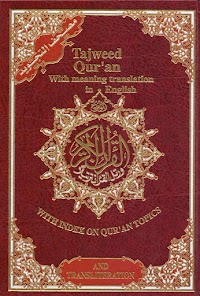Related Posts
- Pillars of Islam30 Dec 20180
Pillars of Islam You bear witness that there is no god but Allah and that Muhammad is the Messenger of Allah. Read more »
- Concept of God in Islam06 Apr 20180
Its author said in the introduction, "It is a known fact that every language has one or more terms that are used in reference to God and somet...Read more »
- Islam Is ...06 Apr 20180
An excellent book for non-Muslims explaining various aspects of Islam. Download Your web browser doesn't have a PDF plugin. Ins...Read more »
- Why I Chose Islam?06 Apr 20180
Why I Chose Islam: A story of a priest who reverted to Islam, it is based on a True Story. Download Read more »
- Why I Chose Islam?06 Apr 20180
Why I Chose Islam: A story of a priest who reverted to Islam, it is based on a True Story. Download Your web browser doesn't h...Read more »
- A Guide To Prayer In Islam23 Feb 20170
Muhammad Abdul Karim Saqib Language: English | Format: PDF | Pages: 65 | Size: 3 MB A Guide to Prayer in Islam: Each worship has a quality and...Read more »
- Awqaf Magazine ( No.35)19 Mar 20190
مؤلف الكتاب: kuwait awqaf public foundation الناشر: Kuwait Awqaf Public Foundation سنة النشر: 2018 عدد صفحات الكتاب: 28 عدد زيارات الك...Read more »
- كتاب: Tajweed Quran with Meanings Translation and Transliteration in English=مصحف التجويد مع ترجمة المعاني إلى الإنجليزية (ملون)16 Jun 20183
عنوان الكتاب: Tajweed Quran with Meanings Translation and Transliteration in English=مصحف التجويد مع ترجمة المعاني إلى الإنجليزية (ملون)...Read more »











Post a Comment
EmoticonClick to see the code!
To insert emoticon you must added at least one space before the code.